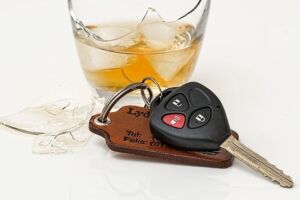![Frequently Asked Questions about DUI Frequently Asked Questions about DUI]() Frequently Asked Questions about DUI
Frequently Asked Questions about DUI
Frequently Asked Questions about DUI with answers on what to do, why you should plead not guilty, how to improve chances of being found not guilty, and more.
Is DUI a Traffic Violation?
This is a common question asked by many and the answer is no. Although DUI typically involves a defendant operating a motor vehicle while intoxicated, DUI is not a traffic violation – it is a crime that goes on a defendant’s criminal record.
Should I plead Not Guilty or admit guilt?
NO! You should not plead guilty or admit guilt if you’re facing DUI charges. There are plenty of reasons why that advice should strongly be considered, but to put it in simple terms, a DUI case isn’t won or lost based on the actions of the defendant alone. In many situations, the actions or inactions of how the police or sheriff performed their stop become big factors in these types of cases more often than one might expect. See “Reasons why you should plead not guilty in DUI cases” for more information.
WHAT IS BAC?
Blood Alcohol Content (BAC) refers to the percent of alcohol (ethyl alcohol or ethanol) in a person’s blood stream. A BAC of .10% means that an individual’s blood supply contains one part alcohol for every 1000 parts blood.
In Florida, a person is legally intoxicated if he/she has a BAC of .08% or higher.
Factors that impact BAC
- Number of standard drinks
- Amount of time in which drinks are consumed
- Body weight
- Water composition
- Enzyme production and levels
- Sex assigned at birth and corresponding hormone levels
- Medications
- Food
One standard drink
- One 12 oz. regular beer (4.5-6% alcohol)
- One 12oz. White Claw (5% alcohol)
- One 7 oz. malt liquor (7% alcohol)
- One 5 oz. glass of wine (12% alcohol)
- One 1.5 oz. shot of hard liquor (40% alcohol)
- One-third jigger (.5 oz.) of Everclear (95% alcohol)
More than one standard drink
- One 16 oz. cup of beer = 1.4 drinks
- One 40 oz. beer = 3.6 drinks
- One 22 oz. malt liquor = 3 drinks
- One 12 oz. glass of wine = 2.9 drinks
- One 12 oz. margarita = 2–4 drinks, depending on ingredients
- One 12 oz. cup of trashcan punch = 4–10 drinks, depending on ingredients
How can I improve my chances of being found not guilty in a DUI case?
As soon as possible, any defendant in a DUI case should immediately try to write down a few pertinent facts and information about the hours leading up to the incident. These fine details at times could lead to a break in your case. There are also many potential pieces of evidence that a defendant may be able to gather and preserve, which can help with their DUI defense. To learn more about improving your chances of being found not guilty in a DUI, see “How to strengthen your DUI defense” for more information.
What happens when you get a DUI for the first time in Florida?
A first-time DUI offense and conviction in Florida can cost up to $1000, up to 6 months in jail, loss of driver’s license for up to 6 months, and 50 hours of community service.
What is the punishment for DUI in Florida?
A first-time conviction for DUI in Florida can result in fines between $500 and $1000. If the BAC is .15% or higher, or if there was a passenger under 18 years of age in the vehicle, the fines increase to $1000 to $2000. If another person suffered serious bodily injury as a result of the DUI, fines can be up to $5000.
Can you go to jail for DUI in Florida?
A first-time misdemeanor for a driving under the influence (DUI) conviction in Florida is punishable by up to 9 months in jail. Typically, a first conviction will not result in more than 6 months of imprisonment. However, if the BAC is above .15%, the imprisonment could be for as many as 9 months. Multiple convictions can result in periods of imprisonment greater than 9 months as well as permanent license suspension.
How long does a DUI conviction stay on your record in Florida?
A DUI conviction in Florida will stay on a defendant’s criminal history forever and cannot be expunged or sealed. In addition, the DUI conviction will also stay on a Florida driver’s license and record for 75 years.
Will a DUI show up on a background check in Florida?
Yes, DUI convictions are part of the public record for 75 years in Florida and they will show up on a background check. However, DUI arrests without conviction are only available for 7 years. An arrest record will not be shown if it has been expunged.
Can I do online DUI classes in Florida?
Florida does not approve or recognize any online DUI class and will not accept participation or completion of any online DUI class as a way to satisfy the state requirement to complete a DUI class.
Is your license suspended immediately after a DUI in Florida?
In Florida, a driver’s license is immediately suspended upon arrest for DUI. For the next 10 days, you may only drive to work or for business purposes, using the ticket as a permit. At the end of the 10 day period, the license will either be fully suspended, suspended with work privileges, or reinstated – all of which is dependent upon the actions of the defendant.
There are two options for first-time offenders during the 10-day window.
1. Request a formal or informal administrative hearing
An administrative hearing can be used to determine if the officer had probable cause to arrest someone for DUI. The Defendant will receive a “Hardship License” which is a 42-day business purpose only driver’s license.
If the hearing is won, the drivers license could be reinstated.
2. Forfeit right to a review hearing in exchange for an immediate business-purpose only license.
The immediate business purpose only license is valid for the entire duration of both a 6 month or 12 month license suspension for first-time DUI. In order to get the immediate hardship license, a defendant must also enroll into a DUI school.
Previous DUI Convictions
Any Florida driver who has been convicted of DUI previously would not be eligible for a hardship license. The only alternative is to pursue the administrative hearing.
Any driver who fails to take action during the initial 10-day window will automatically have their license suspended for a minimum of 6 months or more, depending on the arrest circumstances and criminal history of the driver.


 Frequently Asked Questions about DUI
Frequently Asked Questions about DUI